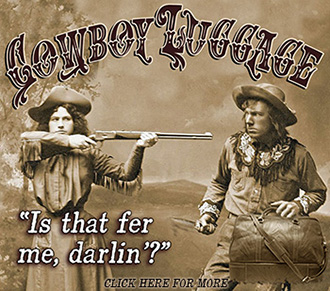The Controversial George Armstrong Custer
 George Armstrong Custer seemed to always live on the edge. Even while at West Point, where, incidentally, he graduated at the bottom of his class, Custer was almost expelled because of demerits for actions like food fights in the cafeteria.
George Armstrong Custer seemed to always live on the edge. Even while at West Point, where, incidentally, he graduated at the bottom of his class, Custer was almost expelled because of demerits for actions like food fights in the cafeteria.
However, one of the low points in his career took place on November 25, 1867 when he was court-martialed. Supposedly, Custer’s officers fell into two categories…those who were related to him, and those who hated him. As for the enlisted men, they fell into one category…those who feared him.
Custer was found guilty on eight counts. They included being absent without leave from his command. He had left his post to visit his wife, Libby. He had also taken along troopers as escort during this trip. Another count was shooting deserters without trial. Incidentally, when Custer left to visit his wife, he was considered a deserter himself.

Libby Custer
The testimony of Captain Frederick Benteen, an officer with Custer at Little Big Horn, was particularly damning. Other charges included abandoning two men, failing to recover two bodies, and cruelty to three wounded troopers. The average officer being found guilty on any of these counts would have meant the end of his career. But George Custer wasn’t average. His sentence was, “to be suspended from rank and command for one year, and to forfeit his pay proper for the same time.”
At the end of the year Custer’s friend and advocate, General Phil Sheridan, called him back to active duty. Custer felt he had to do something spectacular to redeem himself. And he did on November 27, 1868, when Custer and 800 men attacked the peaceful camp of Black Kettle that was flying the American Flag and a white truce flag.





Leave a Reply